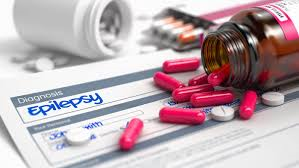Handling Social Events and Crowds Safely

Attending social events, parties, and large gatherings is a normal part of life — but for adults living with epilepsy, these environments can sometimes feel overwhelming or even risky. Between flashing lights, loud noises, and the unpredictability of crowds, it’s understandable to feel hesitant. Still, with the right preparation and self-awareness, you can enjoy social events safely and confidently.
Know Your Triggers
Understanding your personal seizure triggers is one of the most important steps in managing epilepsy in social settings. Common triggers include:
- Sleep deprivation
- Stress or anxiety
- Alcohol consumption
- Flashing or strobe lights
- Overheating or dehydration
By being aware of what affects you, you can make informed decisions about which events to attend and how to manage your environment.
For example, if flashing lights are a trigger, you might avoid nightclubs or concerts with strobe effects. If lack of sleep lowers your seizure threshold, plan to leave events early to ensure a good night’s rest.
Plan Ahead
Advance planning can help reduce anxiety and minimize risks:
- Choose your events wisely. Opt for settings that feel comfortable and safe. Outdoor picnics, smaller gatherings, or well-lit indoor spaces may be more manageable than crowded concerts or chaotic festivals.
- Bring a trusted friend. Attending events with someone who knows about your condition and how to help in case of a seizure can offer peace of mind.
- Know your exits. Identify quiet areas or places you can go to rest if you begin feeling overwhelmed or unwell.
- Pack essentials. Bring your medication, a water bottle, medical ID, and any emergency instructions that someone might need to help you.
Communicate When Needed
You don’t have to disclose your condition to everyone, but letting someone at the event — a close friend, the host, or a coworker — know about your epilepsy can be helpful. This person can act quickly if a seizure occurs and help ensure your safety.
You can also wear a medical alert bracelet or carry a seizure response card that explains what to do during a seizure. These simple tools can make a big difference in emergencies.
Manage Stress and Sensory Overload
Social environments can be stimulating and sometimes stressful. Here are a few strategies to manage that:
- Take breaks. Step outside or into a quiet room to decompress if needed.
- Use earplugs or sunglasses. These can help reduce sensory input in loud or bright environments.
- Practice mindfulness techniques. Deep breathing, grounding exercises, or simply taking a few moments to pause can help you stay calm and present.
Enjoy Yourself — On Your Terms
It’s important to remember that epilepsy doesn’t have to define or limit your social life. While some modifications might be necessary, you still deserve fun, joy, and connection. Don’t feel pressured to explain your condition unless you’re comfortable. Your needs are valid, and honoring them is a sign of strength — not limitation.
If you ever feel unsure, remind yourself: being proactive about your health is what allows you to enjoy these moments safely.
Living with epilepsy may require a few extra precautions, but it shouldn’t keep you from enjoying social events and meaningful moments with others. By knowing your triggers, planning ahead, and communicating with trusted friends, you can take part in social life with confidence and ease. With the right support and awareness, navigating crowds and gatherings can be a positive, empowering experience.
Text generated by ChatGPT, May 28, 2025, OpenAI, https://chat.openai.com/chat. ChatGPT